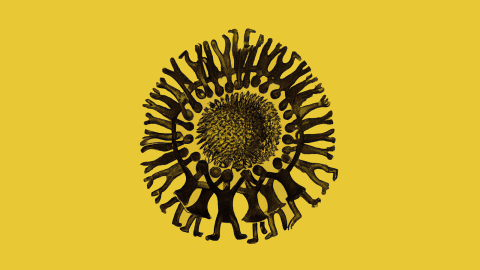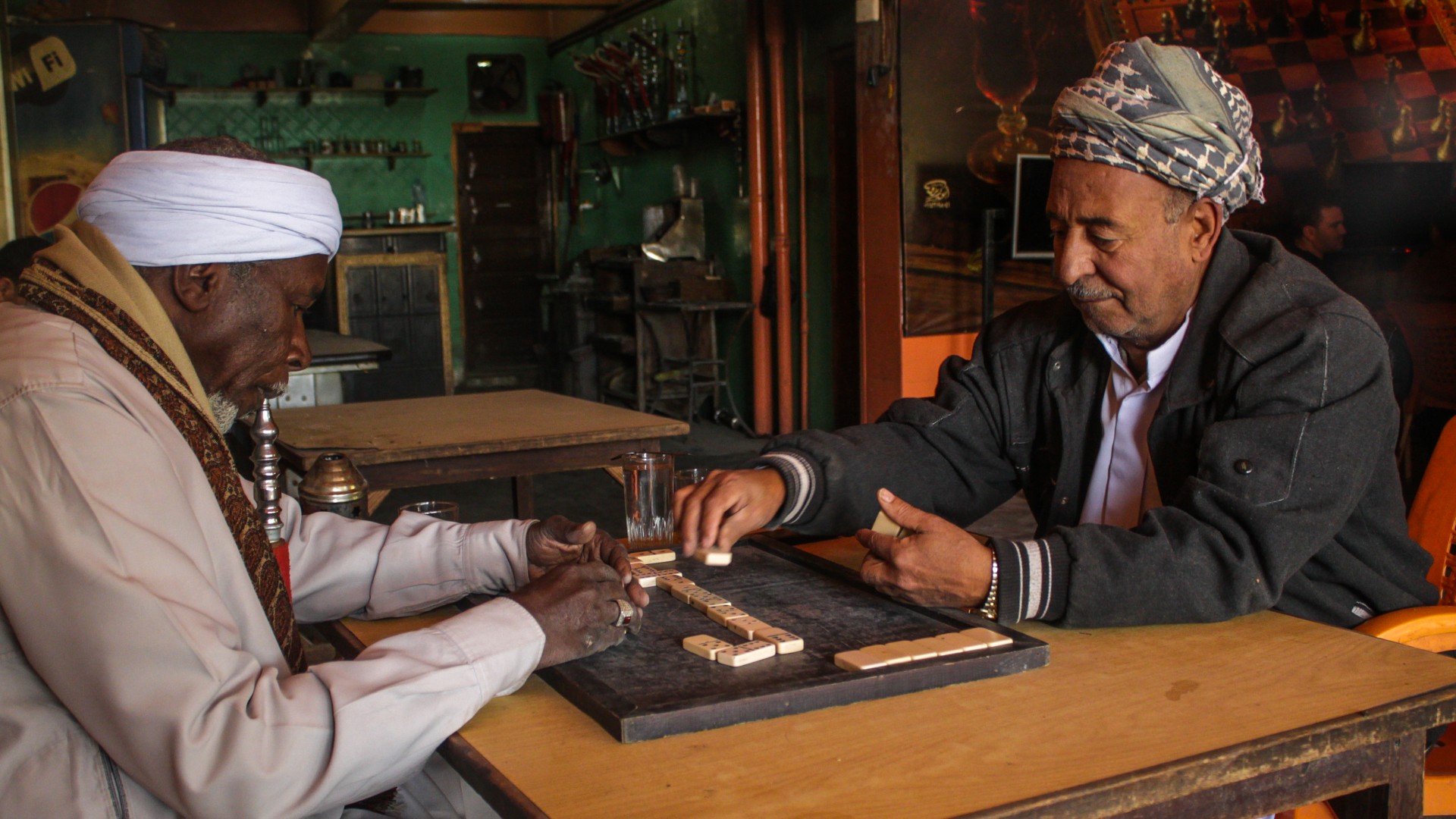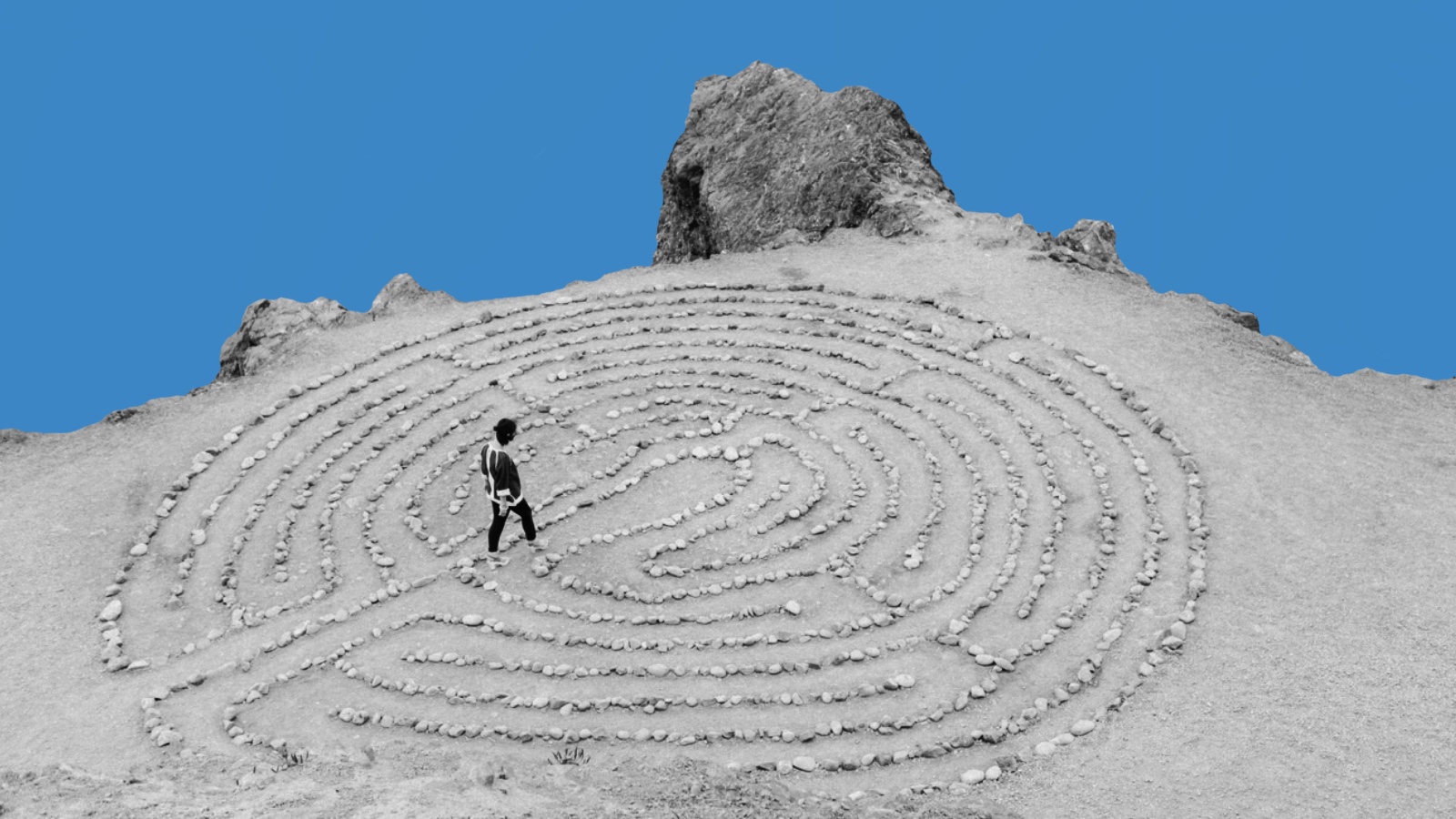Want to live a happy life? Focus on your relationships

- Many factors contribute to a thriving and fulfilling life.
- But research shows that positive relationships have an outsized influence on people’s health and happiness.
- Harvard psychiatrist Dr. Robert Waldinger discusses why that is and how we can nurture these relationships in our lives.
How can you live a happy life? It’s a surprisingly difficult question to answer because there are so many factors to account for. Is a happy life built on your career and earnings? Your standing within your community? Does it come from a photo album filled with memories of holidays and vacations? Is it predicated on your health and wellness or based on a genetic predisposition toward being happiness regardless of the circumstances?
In some ways, the answer is yes to all of these, as each contributes to how you approach life and your appraisal of it. You can’t ignore any one, nor do any offer a universal panacea for the others.
However, in their new book The Good Life: Lessons from the World’s Longest Scientific Study of Happiness, Robert Waldinger and Marc Schulz, the director and associate director of the Harvard Study of Adult Development respectively, argue there is one factor that “stands out for its power and consistency” in helping people live thriving and fulfilling lives. That is the quality of their relationships.
I spoke with Dr. Waldinger to learn why relationships had such power and how we could better cultivate them in our lives.*
Kevin: For those who may be unfamiliar, what is the Harvard Study of Adult Development?
Waldinger: As far as we know, it is the longest study of adult life that’s ever been done. We started the study in 1938 — so I’m the fourth director [Laughs] — and we are collecting data to this day. It has followed the same people for 85 years and has also started following their children, so we now have 724 families.
What’s rare about this study is that it follows people year after year over decades, so we get to see how life really progresses for people rather than just taking snapshots of life at different points.
Kevin: What are the study’s aims?
Waldinger: The aim is to see what helped people thrive as they went through their lives.
This was radical for its time because most research back then looked at what went wrong in human development because they wanted to know how to make things better. But there had never really been a study of what promotes well-being and what predicts who will be healthier and happier as they go through life.
Kevin: Before discussing what makes a good life, let’s first consider some popular misconceptions. What does the research show that we get wrong about happiness and well-being?
Waldinger: There are all these myths in the culture, right? That if you’re rich, you’re happier. That if you’re famous, you’re happier. That if you achieve a lot, you’ll be happier. And none of those is true.
We’ve had rich people, famous people, and high-achieving people in our study, and they’re not happier on average than the people who lead regular lives. The problem, I think, is that our culture holds out these myths because they sell things. Think of all the messages we get about how we’ll be happier if we buy a certain car, right? Or we’ll always look young if we use a certain brand of face cream. This idea is that we can make everything perfect if we just consume the right things.
And although we all know rationally that’s not true, we can get the feeling that somehow other people have it all figured out, and we don’t.
Why relationships are vital to a happy life
Kevin: It’s interesting that we listen so much to other people about what will make us happy. You’d think we would know ourselves well enough to accurately predict our future happiness. And yet, speaking for myself here, the success rate has not always been great.
Why do we have such difficulty forecasting what will and won’t make us happy?
Waldinger: What we’ve found is that investing in your relationships with other people is the thing that will make you happiest and keeps you healthiest. So, it’s both of those things, but relationships are tricky.
They’re messy because people are messy — even the people we know well. We have different moods, we have different likes and dislikes, and we change over time as we go through life.
And so, relationships are definitely what keep us happier and healthier, but they are also less predictable than just picking up my phone and looking at somebody’s Instagram feed. Right? I know what I’m going to get there.
Kevin: [Laughs.] That’s a good point.
So in your new book, you single out a “life of good relationships” as the key to happiness. If I remember the statistics correctly, people in their 50s who said they enjoyed positive relationships were happier than others on average all the way into their 80s.
Waldinger: And they stayed healthier. They were less likely to develop coronary artery disease and arthritis. They lived longer.
We didn’t believe this when we first found it but then other studies began to find the same thing. Because the question is like, How could good relationships actually get inside your body and affect your physiology? And so, we’ve been studying that for the last 10 years.
What we’ve found is that investing in your relationships with other people is the thing that will make you happiest and keeps you healthiest.
– Robert Waldinger
Kevin: Why is it that relationships have this effect despite their messiness and unpredictability?
Waldinger: We think the best hypothesis is that good relationships are important ways that we manage stress.
If something happens to me today and I get upset, I can feel my body rev up. My heart rate elevates, and I start to sweat and ruminate. That’s the body going into fight-or-flight mode, which we want to do to meet challenges. But when the threat is removed, we want the body to go back to baseline. What I find is that if I can go home and talk to my wife, I can feel my body calm down.
One of the things the science suggests is that people who are isolated or have toxic relationships can’t do that. They don’t have a place they can go to recover from fight-or-flight mode. They then stay in a state of elevated stress hormones and slightly elevated inflammation throughout their body. We know that that breaks down body systems over time.
Kevin: And over the course of many years — hence the through line from someone’s 50s to their 80s.
Waldinger: Exactly.
Nurture your relationships today (and across your lifetime)
Kevin: So then, what are the different types of relationships that we want to cultivate?
Waldinger: All types of relationships convey benefits to us, not just intimate partners. You don’t have to have an intimate partner to get these benefits. They come from friendships, family relationships, work relationships, and even casual relationships.
Do you know the person who makes your coffee in the morning at Dunkin’ Donuts or Starbucks? Or the mail carrier who you see every day? We get little hits of well-being when we connect with them.
All relationships have the potential to contribute to our health and happiness.
Kevin: I think a lot of people intimately understand that relationships are good for us, even if they can’t articulate the benefits.
On the other hand, as I’m thinking over my life or reading the stories of people in the Harvard study, it seems we chronically give relationships short shrift. Why do you think that is?
Waldinger: Because so many other things seem like they take priority, right? You’ve got to go to work. You’ve got to meet a deadline. You’ve got to do something for your kids. There are the many pressures of caring for aging parents. I mean, so many things are weighing on people. In the face of that, it can be easy to neglect friendships.
When I was in my 20s, I thought, “I have these friends from elementary school, high school, and college. They’re going to be my friends all the time.” But what we see as we track people’s lives is that perfectly good relationships can wither away — not because there was anything wrong. Just from neglect.
If we get so overcome by the demands of life that we don’t connect with the people that we care about, we’ll stop knowing about their lives. They’ll stop knowing about our lives. We’ll stop feeling as close.

Kevin: What would you say to the midlifer who wants to cultivate relationships but has already lost those friendships from their 20s?
Waldinger: We have a chapter in the book titled “It’s Never Too Late.” The reason we have that chapter is that many of the stories in the book include people who thought they would never have good relationships. They didn’t have friends; they were pretty isolated.
One man in his 60s had to retire for health reasons. He joined a gym, and he found this group of friends that he’d never had before and started connecting with them. He discovered some of these people liked movies, so they went to the movies together. He wrote to the study saying, “I’ve never felt like I had a group of friends before, and now I have one.”
We have other people in our study who found love in their 70s, some in their 80s. And so, we have proof that it’s not too late. Even if you think it’s too late for you, it’s not. You just don’t know what’s going to happen.
Kevin: Gotcha. So, I imagine our hypothetical midlifer would be thinking, “Sounds great. But, you know, I’m getting older, and I’m out of practice. Where do I even start?”
That brings me to a term I was first introduced to in your book: social fitness. Can you explain what that is?
Waldinger: We coined that term because it’s something that’s a lot like physical fitness. When you go to the gym, you don’t come home and say, “Good. I’m done! I never have to do that again.” Right? We know that we need to keep taking care of our physical bodies.
What we saw was that we need to do the same with our social lives: That our social lives are these living things that need care. And we’re not talking about some great, big effort. We’re talking about tiny efforts.
An investment in our social fitness isn’t only an investment in our lives as they are now. It is an investment that will affect everything about how we live in the future.
– Robert Waldinger and Marc Schulz from The Good Life
Let’s say people reading this interview think of somebody they want to connect with — somebody they haven’t seen in a while and want to reach out to. Send that person a text. Send them a short email saying, “Hi!” or something more personal. Whatever you want to say, just try it. Much more often than not, you’re going to get something back that’s positive, where the person is happy to hear from you.
Sometimes I’ll give a talk, and at the end of the talk, I’ll say, “Try this right now. Take out your phone, and try this.” Then during the question-and-answer period, I’ll ask, “Did anybody get anything back?”
And people will say they’ve already made dinner dates for next week. One person said their person texted them back, saying, “I’m so glad you reached out. I just had surgery, and I’m feeling kind of lonely. Thank you so much.”
The remedy for social isolation and not letting your relationships fall away is small things. Put out something small — one thing every day — and see what comes back to you. It won’t happen all the time. Some people won’t respond, but most will be delighted you reached out.
Zen and the art of relationship maintenance
Kevin: I’ll give that a try. In that vein, there’s another term I highlighted in your book: radical curiosity. Can you discuss how people can use radical curiosity to build on those small interpersonal efforts?
Waldinger: What we find is that people are hungry to be seen. When we are interested in each other, it’s thrilling. If I’m genuinely interested in what it’s like for you to be a writer and interviewer, and I want to know about it, you’ll enjoy telling me. You’re asking me about my research, and I’m really happy to tell you.
You can do that with your Uncle Joe. You may feel like you’ve known him forever, but start asking him about something you’ve never asked before about his life. Curiosity is a way to acknowledge people. It’s a way to tell them, “Look, I’m interested in you.”
One of my Zen teachers gave me this task in meditation, and it works in relationships, too. Set the intention to look and say, “Okay, what’s here right now that I’ve never noticed before?”
I’ve done it a thousand times, sitting with a person who I feel like I know like the back of my hand. What’s here with this person that I’ve never seen before? With my partner? With my old friend? With my cubicle-mate at work? Just ask yourself and then be curious.
Kevin: As a Zen priest and the director of the Harvard Study of Adult Development, do you see any place where your research lines up well with a concept or practice in Buddhism?

Waldinger: Well, it’s going to sound really basic, but it’s true. It’s the concept in Zen Buddhism of impermanence — the idea that everything is always changing, even if we can’t see it.
Because change can be so slow. You look at a boulder, and you think, “That’s not changing.” But of course it is. It’s just that we don’t recognize it. Everything’s always changing.
When you watch yourself in meditation, you realize, “My gosh! I feel so different than I did 10 minutes ago just sitting here on my cushion.” Or when we look at our lives over the years, we think, “Oh gosh, the amount of change is phenomenal.” That’s probably the place where the core truth and teachings of Buddhism align exactly with what we see in our research.
I think of it a lot now with my kids. I have two sons, and they’re in their 30s. Now I see little kids, and it’s like, “Oh, I missed that time. It’s so great, you know?” It was exhausting when they were little, but so much fun and so wonderful to see these beings that were changing right before my eyes every moment.
Kevin: My son is turning 12 years old next month, and it struck me the other day that he’s a completely different person than when he was 2. Not only emotionally or in his personality, but physically. Even down to the cells, he’s a completely different person from then.
Waldinger: Exactly. That impermanence is something that Zen teaches us to embrace. The more we try to hold tight to something and keep it from changing, the more we suffer.
All relationships have the potential to contribute to our health and happiness.
– Robert Waldinger
Kevin: To wrap this interview in a nice bow, how can we take that Zen teaching to embrace the impermanence of life and turn it into something we can take into our relationships? I’m specifically thinking of a theme from your book that resonated strongly with me: the importance of attention.
Waldinger: That’s perfect, actually. We use attention to understand, “Okay, who is this person now?”
Let’s say you have a partner or a friend you’ve known for years and years. But who is that person? Who is that person tonight? You’ve probably had countless meals together, but who’s that person at this moment?
The way we can apply this to relationships is to allow each other to change, to help embrace that change, and to hope that other people allow us to change. The more we do that, the happier and more stable our relationships turn out to be. It’s when we ask each other to stay exactly the same that we all suffer — because it’s just not what happens.
Kevin: Thank you very much for sharing your time with me. I appreciate it. Where can our readers find you online to learn more about living a meaningful and satisfying life?
Waldinger: Sure. They can go to our book website, the-good-life-book.com. I can be found at robertwaldinger.com. And I have Zen teachings on Insight Timer.
Learn more on Big Think+
With a diverse library of lessons from the world’s biggest thinkers, Big Think+ helps businesses get smarter, faster. To access Big Think+ for your organization, request a demo.
* This conversation has been edited for length and clarity.





